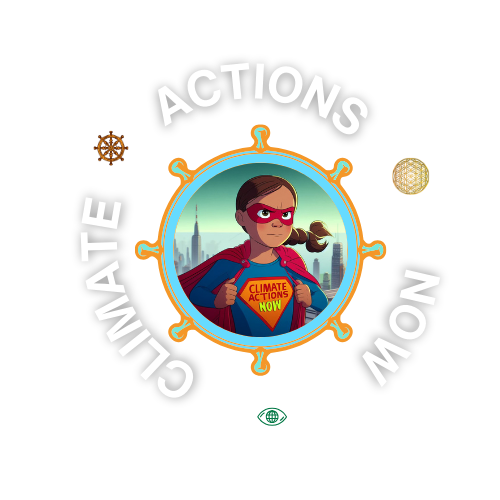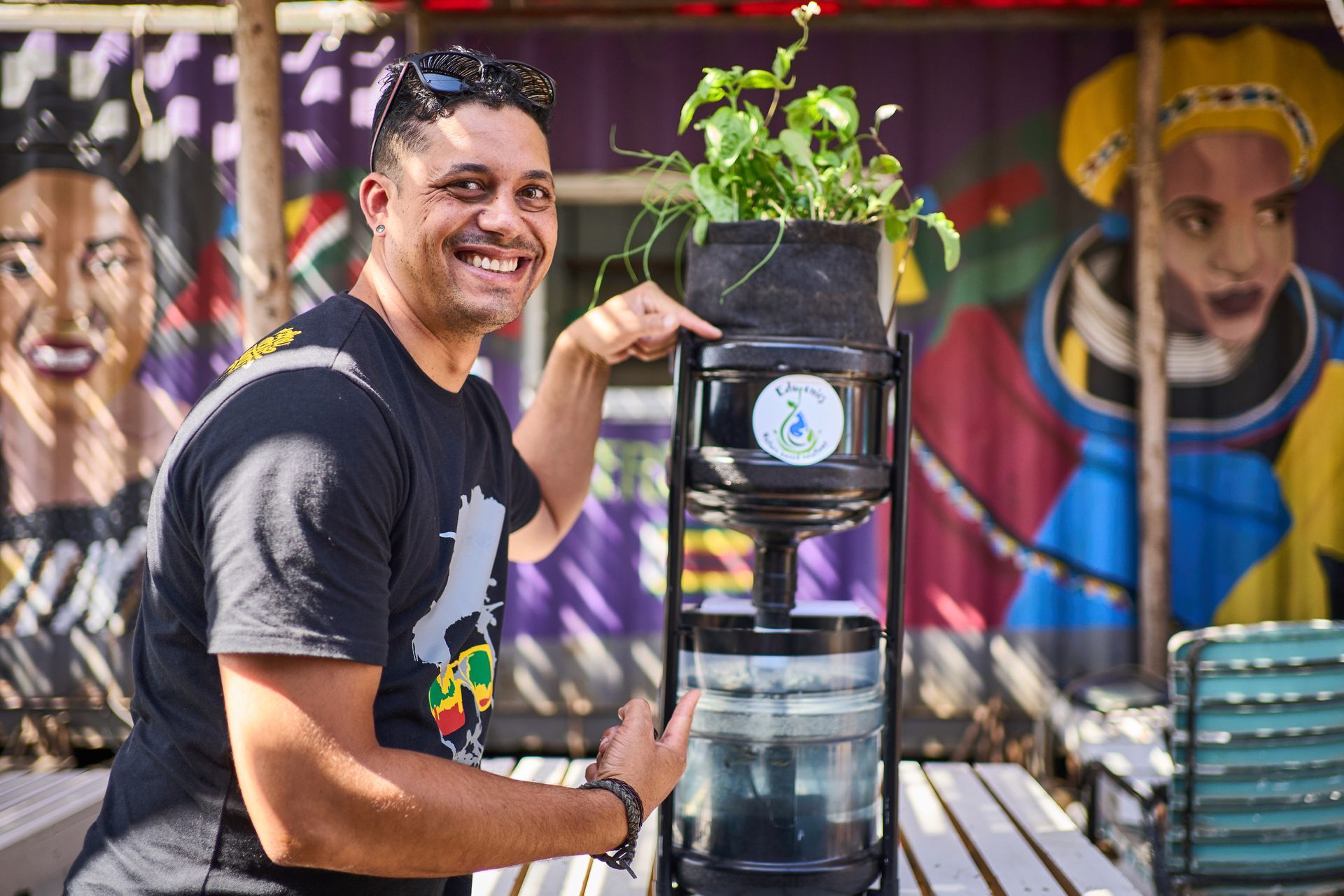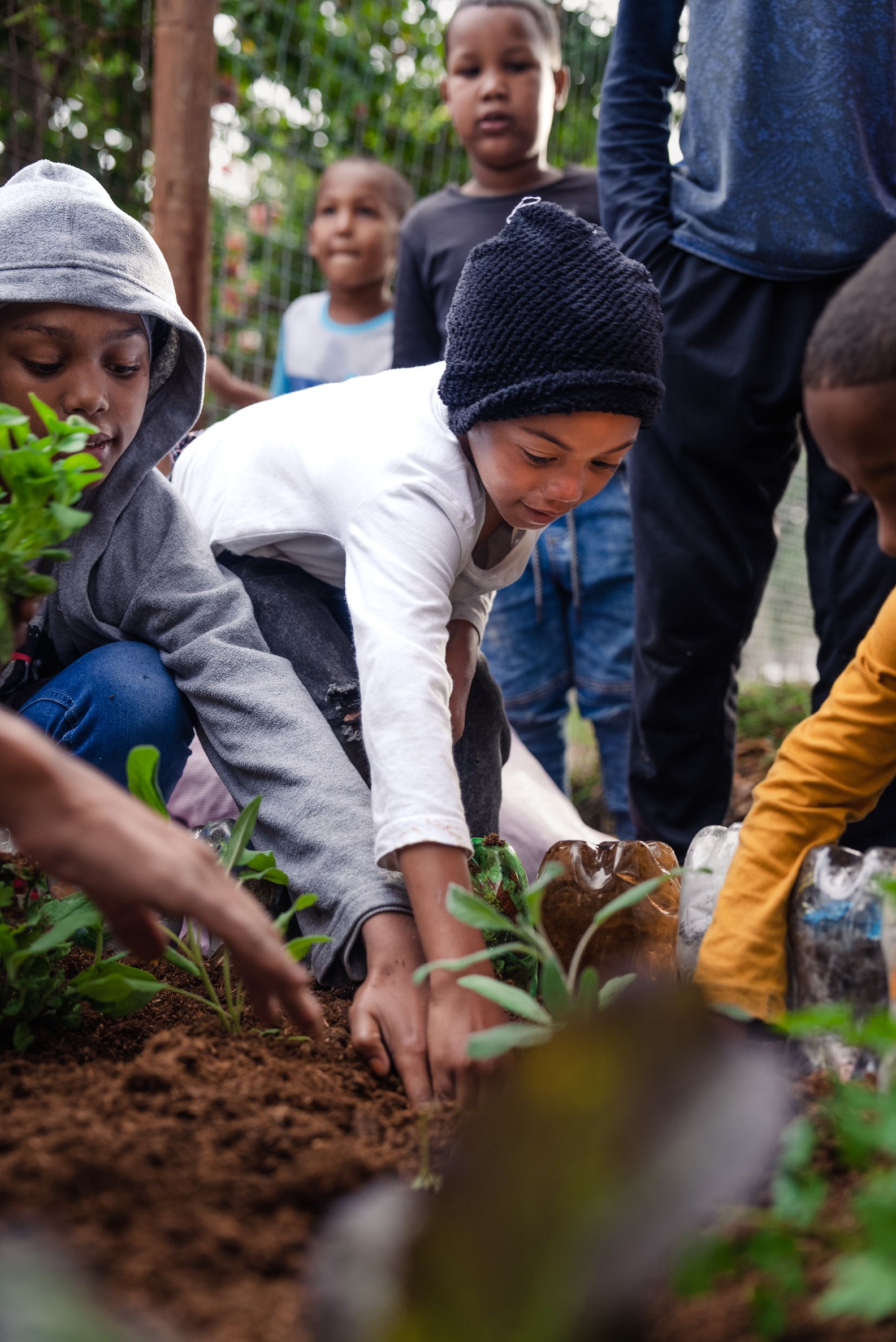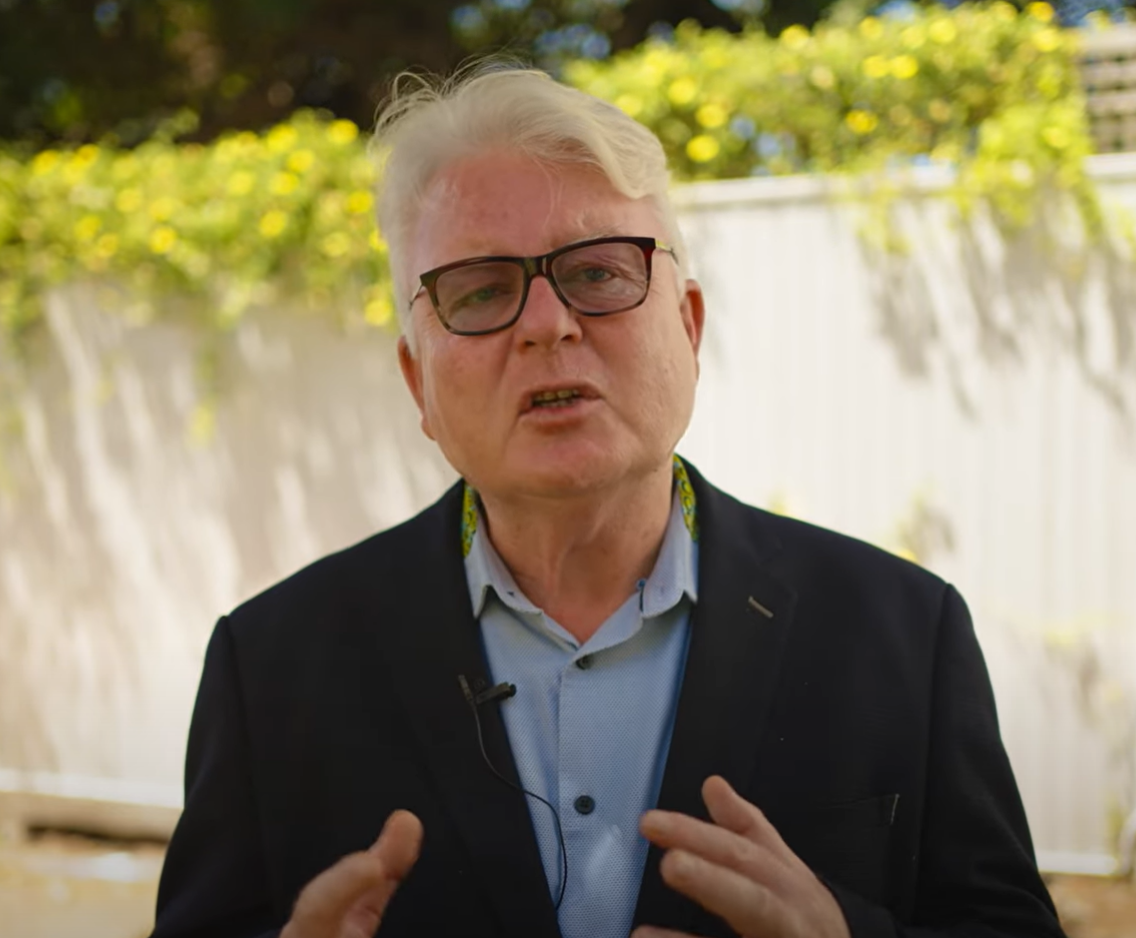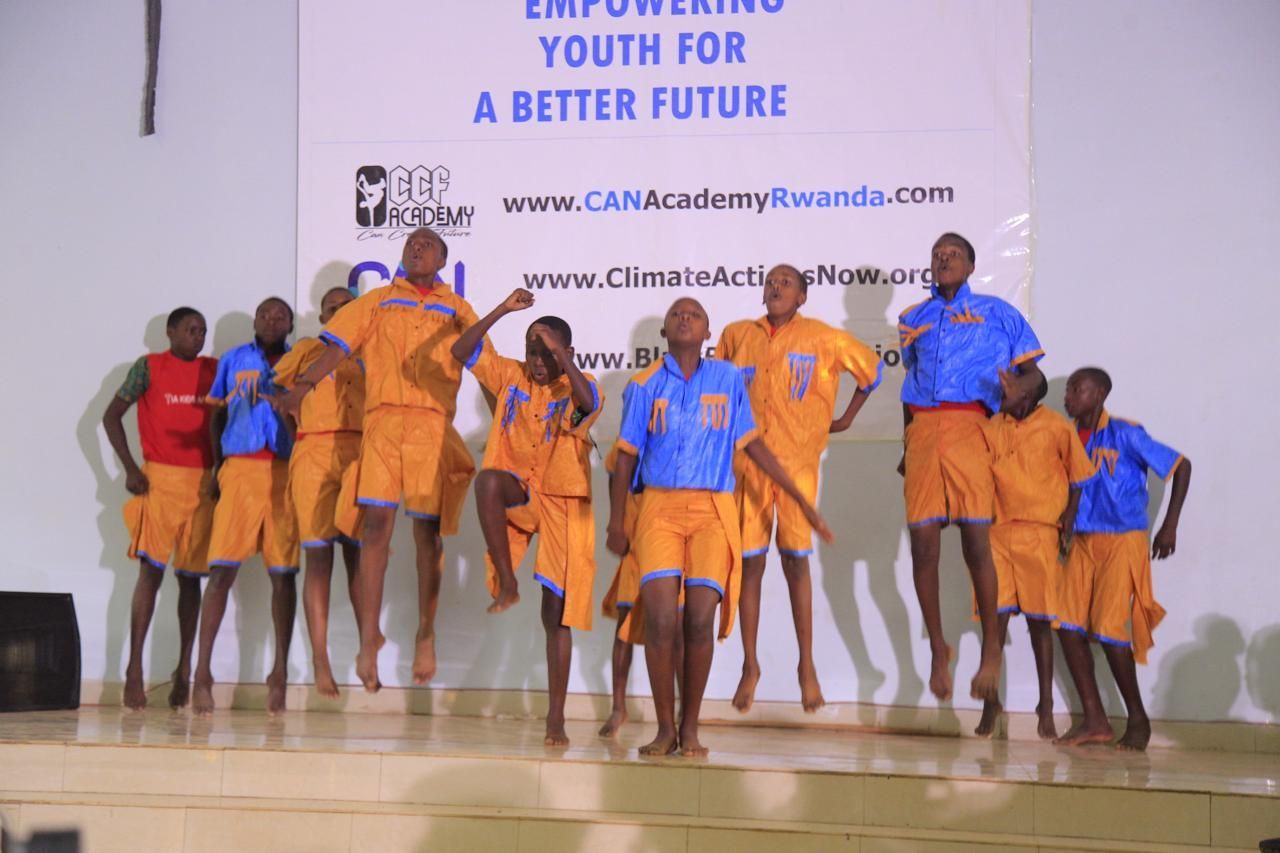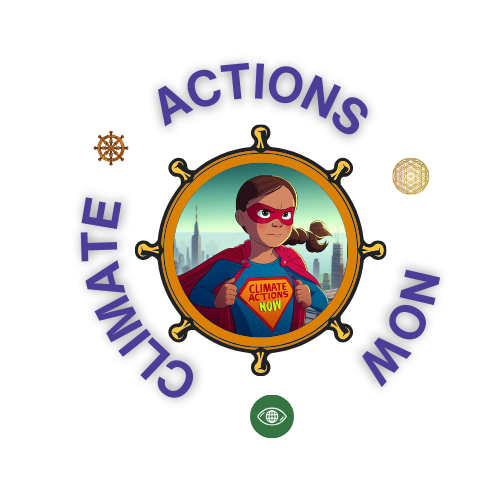Article
Dr. Phil-afel Foundation: Growing Wellness Through Sustainable Agriculture
Follow us on Instagram
The Dr. Phil-afel Foundation stands as a beacon of hope and health in South Africa, demonstrating that sustainable agriculture is more than just growing food—it's about cultivating community wellness, environmental stewardship, and a more resilient future for all.
Through innovative programs centered on permaculture, nutrition education, and community development, the foundation has transformed countless lives while healing the land. Their work proves that when we invest in sustainable practices and empower communities with knowledge, we create lasting positive change that ripples across generations.
Our Partnership: Growing Impact Together
Climate Actions Now is proud to partner with the Dr. Phil-afel Foundation in bringing sustainable agriculture and wellness programs to communities across South Africa. Together, we're addressing food security, promoting health, and creating opportunities for environmental stewardship at the grassroots level.
This partnership aligns perfectly with our mission to empower communities through education, innovation, and sustainable practices. By combining the foundation's deep expertise in permaculture and community health with our youth education programs, we're creating a powerful model for climate action that starts at home.
The Vision: Wellness Through Sustainable Living
Dr. Phil-afel Foundation believes that true wellness comes from living in harmony with nature. Their approach integrates sustainable agriculture, nutrition education, physical health, and mental wellbeing into a holistic model of community development. The foundation's work is rooted in the understanding that healthy soil grows healthy food, which nourishes healthy people, who build healthy communities.
At the heart of their work is Valley of Plenty in Hanover Park, Cape Town—a thriving demonstration site where permaculture principles come to life. This urban oasis showcases what's possible when we reimagine our relationship with food, land, and community. Visitors witness firsthand how sustainable agriculture can flourish even in challenging urban environments, providing fresh produce, educational opportunities, and a gathering space for community connection.

The foundation's permaculture approach works with natural systems rather than against them. By creating food forests, implementing water-wise irrigation, building healthy soil through composting, and fostering biodiversity, they demonstrate that sustainable farming can be more productive, more resilient, and more beneficial to both people and planet than conventional methods.
Programs That Transform Communities
The Dr. Phil-afel Foundation's programs are designed to empower individuals and communities with the knowledge, skills, and resources needed to create sustainable food systems and improve overall wellness. Each initiative is crafted with care, cultural sensitivity, and a deep understanding of community needs.
Sustainable Agriculture Training: Comprehensive courses teach community members how to grow food using permaculture principles. Participants learn about soil health, water conservation, companion planting, natural pest management, and season extension techniques. These aren't just theoretical lessons—participants get hands-on experience establishing gardens, building compost systems, and creating productive growing spaces in their own communities.
The training programs are accessible to people of all ages and backgrounds, from young students discovering environmental careers to grandmothers sharing traditional knowledge alongside new techniques. This intergenerational approach enriches the learning experience and ensures that valuable agricultural wisdom is preserved and passed forward.

Nutrition Education: Understanding what to grow is only part of the equation—knowing how to prepare and preserve nutritious food is equally important. The foundation's nutrition programs teach participants about balanced diets, food preparation techniques that preserve nutrients, traditional recipes using locally grown ingredients, and food preservation methods that reduce waste and extend the harvest season.
These workshops address the specific nutritional challenges facing many South African communities, including combating malnutrition in children, managing diet-related chronic diseases, and making the most of limited resources. Participants leave empowered with practical knowledge they can immediately apply to improve their families' health and wellbeing.
Youth Environmental Programs: Young people are the foundation's future. Through engaging environmental education programs, youth discover the wonders of nature, learn about climate change and its local impacts, develop leadership skills through community projects, and explore career opportunities in environmental fields. These programs spark a passion for environmental stewardship that will shape the next generation of climate leaders.
Youth participants have gone on to start their own gardens, lead environmental clubs at their schools, and pursue studies in agriculture, environmental science, and sustainability. The ripple effects of investing in youth environmental education extend far beyond the immediate program outcomes.

Real Impact: Stories of Change
The true measure of the Dr. Phil-afel Foundation's work isn't found in statistics alone—it's in the transformed lives and revitalized communities across South Africa. In townships and rural areas, families who once struggled with food insecurity now harvest fresh vegetables from their gardens year-round. Community members who felt disconnected from nature have rediscovered the joy and peace that comes from working with the soil.
Young people who participated in environmental programs have discovered their calling, pursuing careers in sustainable agriculture, conservation, and environmental education. Seniors have found renewed purpose sharing their knowledge with younger generations while learning new techniques to make their gardening more productive and sustainable. Neighborhoods have come together around community gardens, creating spaces not just for food production but for social connection, cultural celebration, and collective healing.
The health benefits are tangible and significant. Families eating fresh produce from their gardens report improved nutrition, better management of chronic conditions like diabetes and hypertension, and enhanced mental wellbeing from the therapeutic effects of gardening. Children who help grow food become more adventurous eaters, more likely to consume vegetables, and more connected to where their food comes from.
The Climate Connection
While the Dr. Phil-afel Foundation's work directly improves food security and community health, it also represents powerful climate action. Sustainable agriculture sequesters carbon in healthy soil, reduces dependence on industrial food systems with their associated emissions, conserves water through efficient irrigation and water-wise plantings, protects biodiversity by creating habitat for beneficial insects and wildlife, and builds climate resilience in communities through local food production.
In South Africa, where climate change is already affecting rainfall patterns, increasing temperatures, and threatening food security, this work is not just beneficial—it's essential. By teaching communities to work with nature, conserve resources, and build resilient local food systems, the foundation is helping people adapt to climate change while simultaneously mitigating its causes.
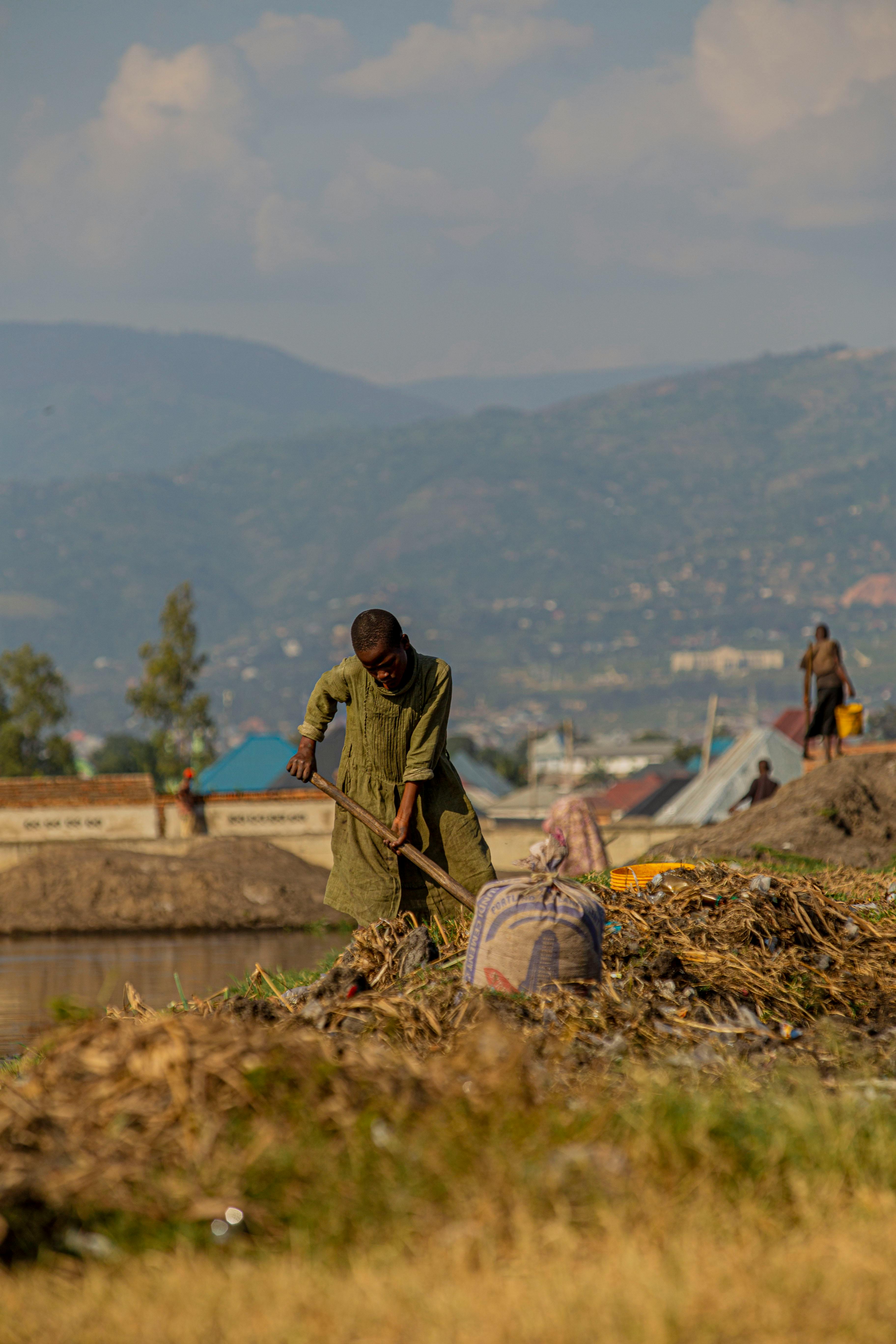
The foundation's permaculture approach creates closed-loop systems where waste becomes resource, where water is harvested and reused efficiently, and where diversity replaces monoculture. These aren't just environmentally sound practices—they're practical solutions that produce more food with fewer inputs while regenerating the land.
Why This Work Matters Now
South Africa faces significant challenges around food security, public health, and climate change. In urban townships and rural communities across the country, many families struggle to access fresh, nutritious food. Industrial agriculture, while producing quantity, has created environmental problems including soil degradation, water pollution, and biodiversity loss. Meanwhile, climate change threatens to make these challenges even more severe.
The Dr. Phil-afel Foundation's work offers solutions to all of these interconnected challenges. By empowering communities to grow their own food using sustainable methods, the foundation addresses food insecurity while building climate resilience. By teaching nutrition alongside agriculture, they improve health outcomes and reduce the burden of diet-related diseases. By engaging youth in environmental education, they cultivate the next generation of environmental leaders and stewards.
This isn't charity—it's empowerment. The foundation doesn't create dependence; it builds capacity. Communities don't just receive food or services; they gain knowledge, skills, and resources to create sustainable solutions for themselves. This approach aligns with the Ubuntu philosophy at the heart of Climate Actions Now: we rise together, supporting each other's growth while respecting each person's dignity and agency.
How You Can Support This Work
The Dr. Phil-afel Foundation's programs are expanding to reach more communities across South Africa, but this growth requires resources. Your support helps fund training programs that teach sustainable agriculture to community members, provides seeds, tools, and materials for establishing new community gardens, supports nutrition education workshops that improve health outcomes, enables youth environmental leadership programs that inspire the next generation, maintains permaculture demonstration sites like Valley of Plenty, and develops water conservation systems that make gardens more resilient.
Every contribution makes a real difference. Whether you're funding a workshop that teaches twenty people to grow food sustainably, providing tools and materials for a new community garden, or supporting youth environmental education programs, your support creates lasting positive change that extends far beyond the initial investment.
Visit Valley of Plenty
Seeing is believing. We invite you to visit Valley of Plenty in Hanover Park, Cape Town, to experience the foundation's work firsthand. Walk through the food forest and see how permaculture creates abundance. Participate in a workshop and learn practical skills you can apply at home. Volunteer for a day and experience the joy of community gardening. Connect with the passionate team bringing this vision to life.
Valley of Plenty isn't just a demonstration site—it's a living testament to what's possible when we reimagine our relationship with food, land, and community. It's a place of learning, growth, and healing. It's proof that sustainable agriculture isn't a luxury or an idealistic dream—it's a practical, achievable solution to some of our most pressing challenges.
Together, we're cultivating wellness, growing hope, and harvesting a sustainable future for all. Join us in supporting the Dr. Phil-afel Foundation as they continue to transform lives and communities across South Africa.
"When we heal the land, we heal ourselves. When we nourish our communities, we create abundance for all." - Dr. Phil-afel Foundation
share this
Related Articles
Related Articles
STAY UP TO DATE
GET PATH'S LATEST
Receive bi-weekly updates from the church, and get a heads up on upcoming events.
Contact Us


